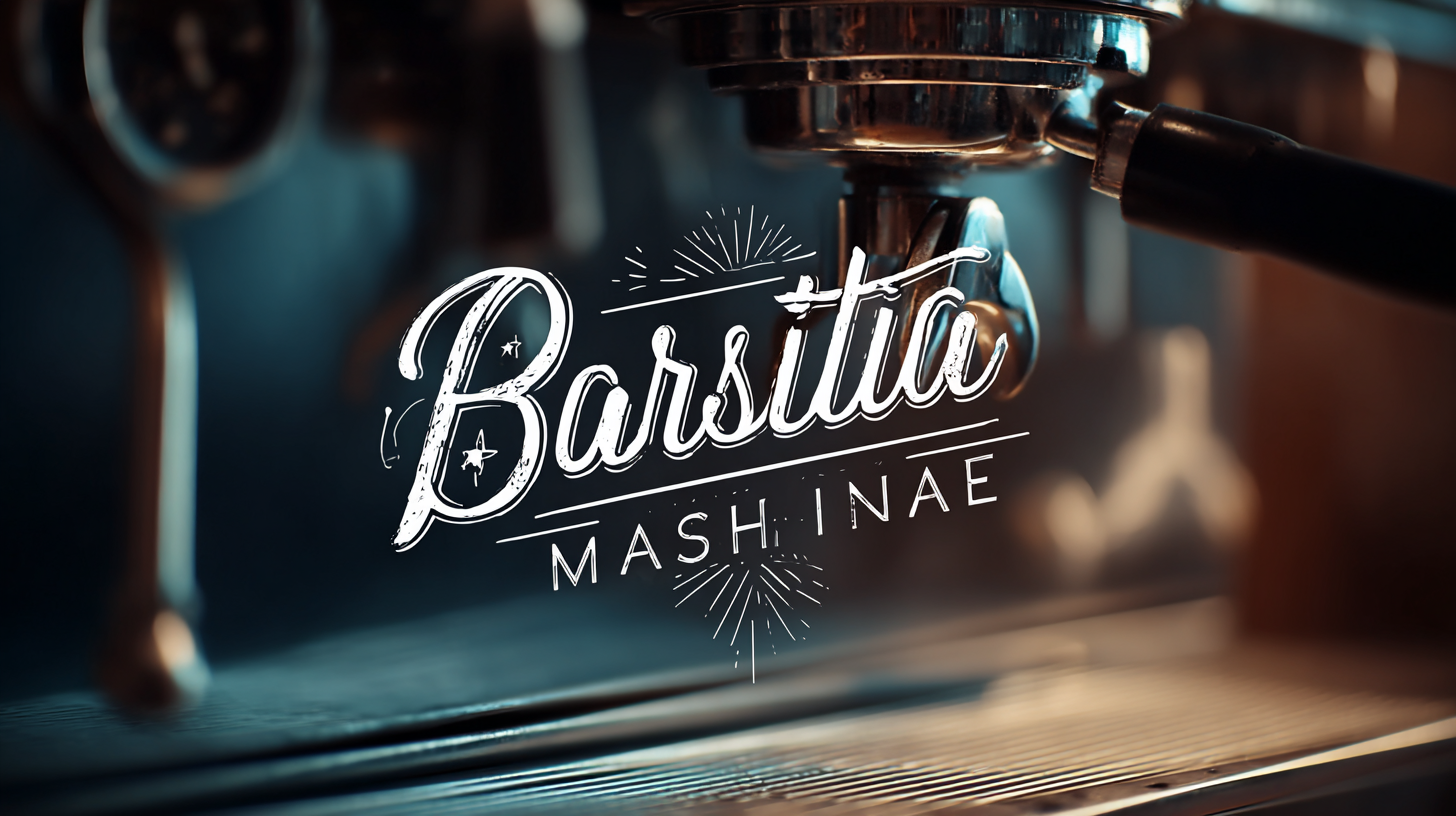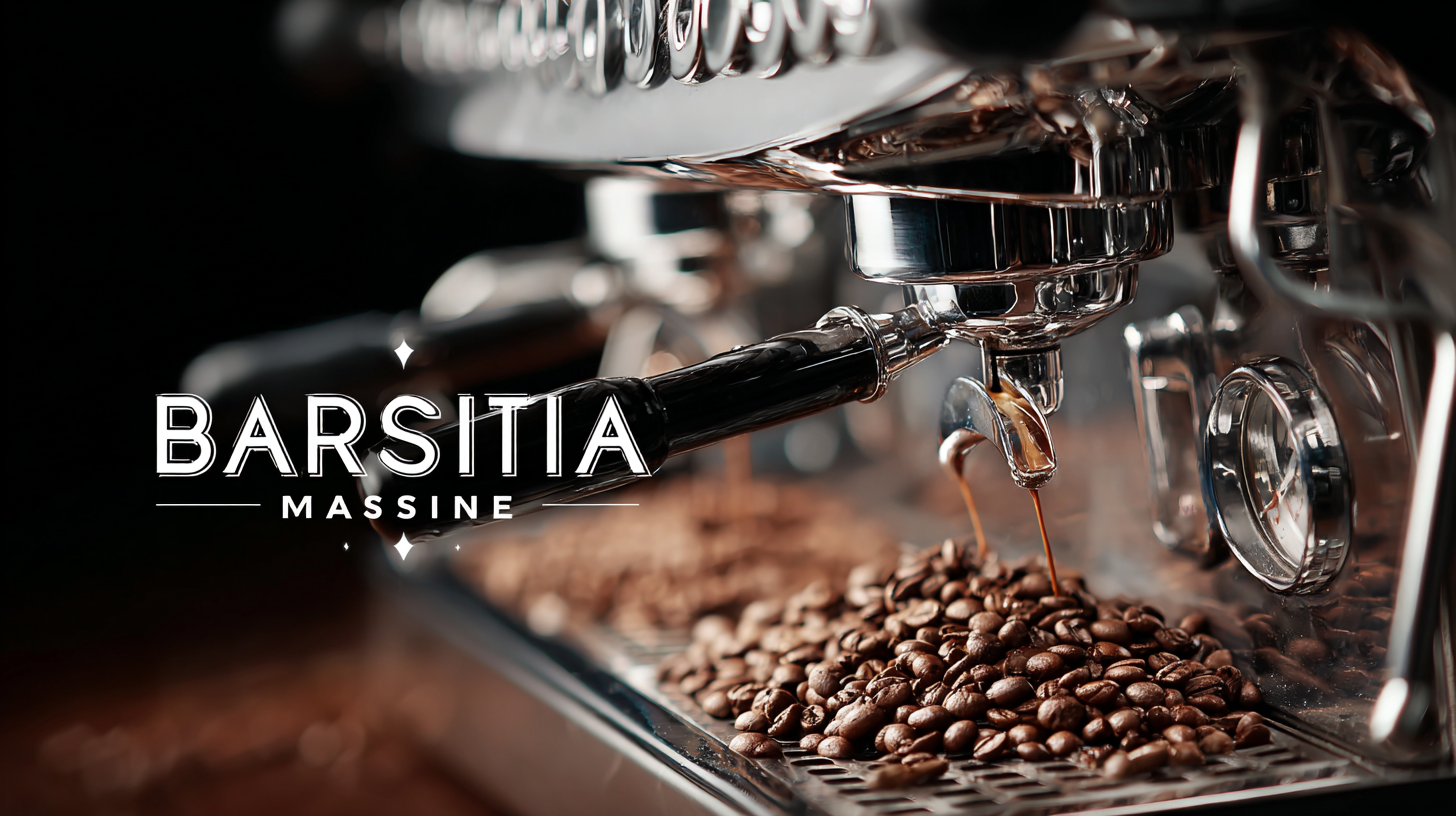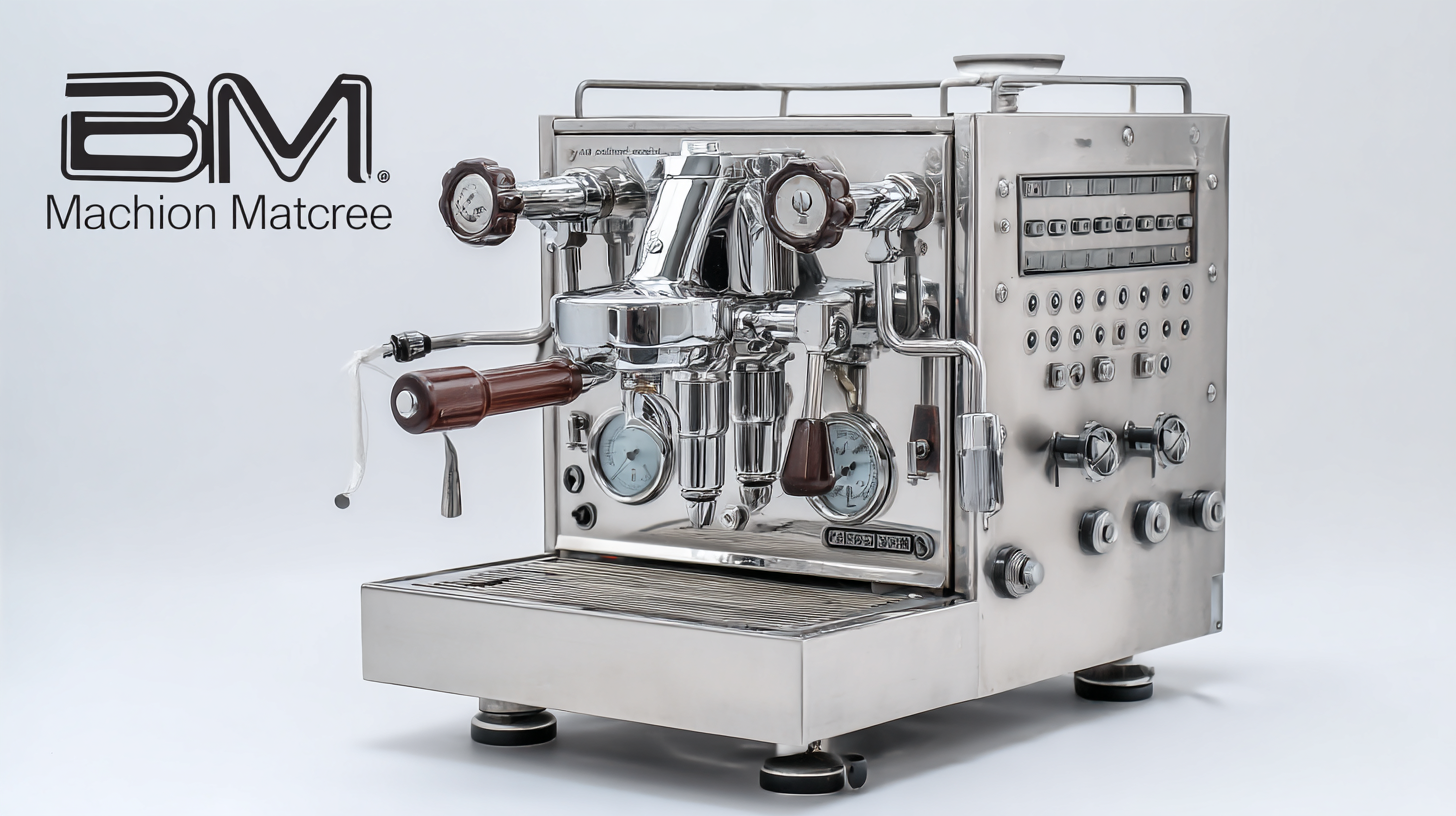Leading Manufacturer of Best Barista Machines Exporting to Global Markets with Proven Quality
In the ever-evolving coffee industry, the demand for high-quality beverages has surged globally, presently valued at over $400 billion according to recent market research. Central to this booming market is the barista machine, a pivotal tool that enhances not only the efficiency of coffee preparation but also the quality of the final product. As consumer preferences shift towards specialty coffee, leading manufacturers of barista machines are stepping up to meet these demands with innovative technologies and proven quality. Reports indicate that the global barista machine market is expected to grow at a CAGR of 6.5% over the next five years, driven by the increasing popularity of coffee shops and brewing equipment. In this context, high-quality barista machines not only impact the profitability of coffee businesses but also play a crucial role in shaping the barista culture worldwide, making them invaluable assets for both entrepreneurs and enthusiasts alike.

The Rising Demand for High-Quality Barista Machines in Global Markets
The coffee industry is witnessing a significant transformation, with a notable rise in the demand for high-quality barista machines across global markets. According to a report by MarketsandMarkets, the global coffee machines market is projected to reach USD 5.6 billion by 2025, growing at a CAGR of 5.4% from 2020 to 2025. This surge is largely attributed to the increasing number of specialty coffee shops and the growing consumer preference for premium coffee experiences.
As the trend shifts towards artisanal coffee, professional barista machines are becoming essential tools for cafes aiming to enhance their product offerings. A study by Research and Markets highlights that approximately 40% of coffee consumers are willing to pay more for better quality, thereby pushing cafes and restaurants to invest in advanced equipment. These high-performance machines are designed to deliver consistent quality in brewing, further solidifying consumer loyalty and satisfaction.
Manufacturers responding to this demand are focusing on innovation and quality assurance. The integration of smart technologies and improved energy efficiency are key trends seen in the industry. With a keen focus on excellence, leading manufacturers are not only exporting top-tier barista machines but are also partnering with global retailers to meet the evolving expectations of coffee enthusiasts worldwide.
The Rising Demand for High-Quality Barista Machines in Global Markets
This chart illustrates the increasing demand for high-quality barista machines across different global markets from 2019 to 2023. The data reflects the annual exports in units, indicating significant growth in regions such as North America and Europe.
Key Features That Define Top-Tier Barista Machines: A Focus on Quality
When it comes to the world of barista machines, the emphasis on quality is paramount. Top-tier barista machines are not only crafted with exceptional materials but also incorporate advanced technology to enhance performance. According to the Specialty Coffee Association, an estimated 70% of consumers view quality as the most critical factor when selecting coffee equipment. This statistic underscores the importance of manufacturers focusing on features like temperature stability, precision in coffee extraction, and consistent pressure—elements that define the best barista machines on the market.
To ensure you are investing in a high-quality machine, pay attention to the build and components. Look for machines that use high-grade stainless steel, as it offers not only durability but also excellent thermal conductivity. Additionally, considering models equipped with PID controllers can provide temperature control within a ±1°C range, significantly improving brewing consistency.
Tip: Regular maintenance is crucial to maintaining the performance of any barista machine. Regular descaling and cleaning can prevent buildup that compromises flavor quality.
Moreover, enhanced user interfaces and programmable settings are becoming standard in premium models. This allows baristas to optimize brewing parameters, which can lead to a richer flavor profile in the coffee served. Research shows that 85% of professionals prefer machines that offer customization options, allowing them to experiment with different brewing methods and recipes. This flexibility is key to producing coffee that meets diverse customer preferences.
Tip: Consider investing in machines with intuitive touchscreen interfaces to streamline operations and reduce the learning curve for new staff.

Market Trends: Understanding Consumer Preferences in Espresso Machine Choices
Consumer preferences for espresso machines have evolved significantly in recent years, influenced by a combination of lifestyle changes and increasing coffee culture. According to a recent report by the International Coffee Organization, the global espresso machine market is projected to reach $2.1 billion by 2025, driven by a surge in home brewing and the popularity of specialty coffee. As consumers seek greater quality and customization in their coffee experiences, features such as integrated grinders, milk frothers, and programmable settings have become essential selling points.
Moreover, a survey conducted by Allied Market Research reveals that 65% of coffee enthusiasts prioritize product durability and ease of use in their purchasing decisions. This underscores the importance of quality manufacturing in meeting consumer demands. Leading manufacturers have responded by investing in advanced technologies and rigorous quality control measures, ensuring their products not only perform well but also withstand the test of time. As the market continues to expand, understanding these consumer preferences will be crucial for manufacturers aiming to maintain a competitive edge in the global arena.
Market Trends: Understanding Consumer Preferences in Espresso Machine Choices
| Feature | Consumer Preference (%) | Price Range ($) |
|---|---|---|
| Quality of Brew | 45% | 200 - 600 |
| Ease of Use | 30% | 100 - 400 |
| Brand Reputation | 15% | 300 - 700 |
| Design and Aesthetics | 10% | 150 - 500 |
How Exporting Innovations in Barista Technology Boosts Competitive Advantage
In the competitive landscape of coffee machinery, leading manufacturers are not just focused on domestic markets but are increasingly exporting their innovations worldwide. The global coffee machine market is expected to reach
$3.32 billion by 2025, according to a report by Grand View Research. This surge is driven by the growing demand for high-quality coffee and the need for efficient brewing technologies in coffee shops and homes alike. To stay ahead, manufacturers are integrating advanced technologies such as IoT connectivity and automated brewing processes into their barista machines, making them smarter and more user-friendly.
Exporting these technological advancements not only expands a company's market reach but also enhances its competitive advantage. A study by MarketsandMarkets indicates that the specialty coffee segment is projected to grow at a CAGR of 10.4% from 2020 to 2025. By catering to this rising demand with innovative barista machines, manufacturers can position themselves as leaders in the industry. The ability to offer state-of-the-art features such as touchless controls and precision brewing capabilities sets companies apart in a crowded market, ultimately driving both sales and customer loyalty across global boundaries.
Analyzing Quality Standards and Certifications in the Barista Equipment Industry
The global specialty coffee market is projected to reach USD 60,953.1 million by 2033, growing at a substantial compound annual growth rate (CAGR) of 10.5%. This growth underscores the increasing demand for high-quality barista machines, which play a pivotal role in delivering the premium coffee experience that consumers seek. As the market expands, the emphasis on quality standards and certifications becomes crucial for manufacturers looking to capture a share of this lucrative segment.

In the barista equipment industry, adherence to quality standards is not just about compliance but about fostering consumer trust and ensuring product reliability. Certifications such as ISO and others specific to food safety are increasingly valued by consumers and businesses alike. These standards not only assure quality but also enhance the durability and performance of barista machines, which are essential for maintaining the nuanced flavors of specialty coffee. With innovations like blockchain emerging to tackle issues such as food fraud, manufacturers are continuously evolving their protocols to ensure that their products meet the rigorous demands of the market.
